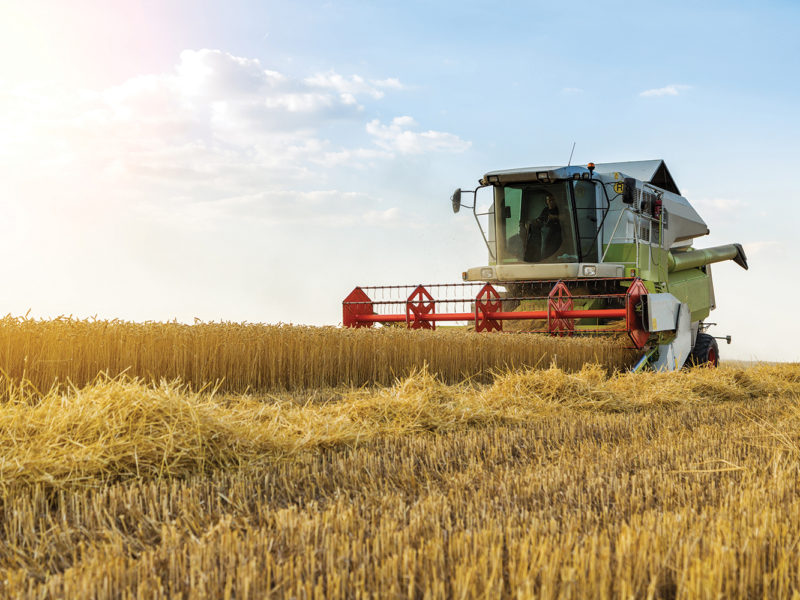DAWSON CREEK – This year’s high commodity prices should be good news for Peace River growers but extreme heat cut yields and left some producers with as little as 30% of a normal crop.
“The heat dome in southern BC also hit us up north. We broke records and our crops dried right out, and there was far below average taken off this year,” says Malcolm Odermatt, president of the BC Grain Producers Association. “We have exceptional prices, but unfortunately we just have no crop to sell.”
Odermatt, who farms in Baldonnel, east of Fort St. John, harvested less than 40% of what he expected.
“For us, typically we fill 22 bins and we filled eight this year,” he says.
Canola was down by a third while his barley came in at less than 25% of average.
BC Ministry of Agriculture, Food and Fisheries says producers have filed 382 notices of loss for grain. Its preliminary estimates indicate that yields are about 30% to 50% of average.
Odermatt says crop insurance is helpful but may not fully cover the losses, thanks to the idiosyncrasies of grain contracts.
“This year, we’ve seen historically high grain prices and lots of farmers went out there and contracted 50% of their expected yields, or maybe 75% – it all depends on their financials and the amount of risk they want to take on,” he explains. “Then we had an absolute wreck of a crop.”
Growers encouraged by high prices this spring and who signed contracts will now have to buy out those contracts at the much higher prices seen this fall. The difference could be as much as 50%.
But insurance is based on crop values in February and doesn’t escalate in step with market prices. This means insured growers will receive payments that are much lower than what they’ll have to pay to buy out their contracts.
“It kind of stinks to get a payout by crop insurance for $12 [a tonne] and (if) you actually had the canola, it would be worth $23,” says Odermatt. “But on the flip side, the price could go down and it would be a higher price because they locked in in February. So it could go both ways.”
This year’s small crop marks the fourth year of weather-related challenges for the region’s grain growers.
Snow in September 2018 put an early end to the season’s harvest, which was already late owing to the impact of wildfire smoke and other issues that year. A decent crop in 2019 was nixed when autumn rains prevented it from drying out on the stalk and farmers couldn’t access fields to harvest it for drying.
Poor weather the following spring meant large tracts of land went unplanted, and rain played havoc with what did get seeded, resulting in one of the worst harvests the region has seen.
But there is good news.
Recent funding for high-efficiency grain dryers will help growers improve grain quality.
Odermatt says this year’s high temperatures resulted in uneven ripening in many fields. So much of his barley was green that he ended up drying it.
“The heat really messed with the plants’ growth cycle, so we had two different stages of crop out there – we had really ripe barley, then we had super green barley,” he says. “We were trying to get both crops off when they’re at two very different stages – about a month apart.”
In December, the BC Peace Agricultural Compensation Fund awarded $147,000 to three farms for grain drying and cleaning equipment.
Odermatt says the grants benefit the industry as a whole because several farms can use the equipment to dry grain from harvest through to January.
“Even though one producer might get the money and set up the dryer, other producers can utilize it and just pay a fee for drying,” he says. “It’s far cheaper than taking it to the elevator, so it does open up marketing opportunities.”


 Interior ranchers feel forgotten
Interior ranchers feel forgotten